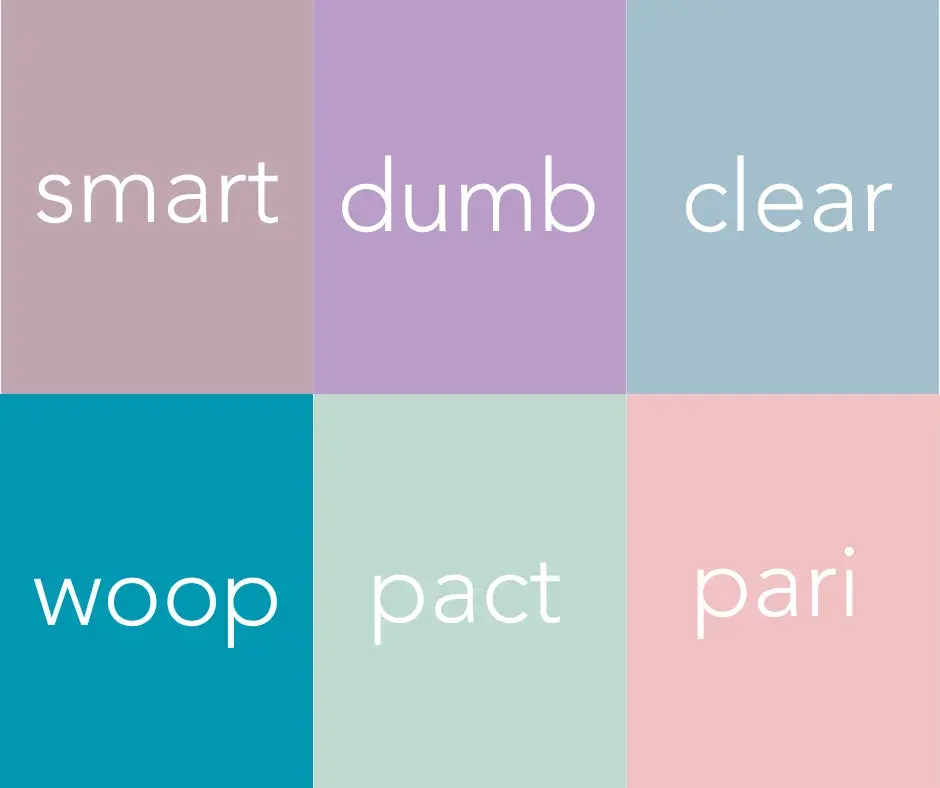
Bilingual news and shares about the brain, languages and coaching
Newsletter 19 - Goals
the L in NeuroLanguage Coaching®
“Obstacles can't stop you. Problems can't stop you. Most of all, other people can't stop you. Only you can stop you.”
— Jeffrey Gitomer
Do you remember how I ended my last newsletter?
You don't?
Did you even read it?
You didn't?
You should; it was really interesting! :-) (link here!)
The first part of this three-part newsletter looked into the neuroscience behind goal setting. I discussed the pros but also the cons. And there are a lot of cons if you're careless about defining your goals.
I chose to cover the subject of goals in December because the new year is often associated with "new year resolutions," and new year resolutions don't usually trigger a warm fuzzy feeling. It triggers a "nope, didn't stick to any of my resolutions yet again" feeling.
You know why? Because a resolution is a goal, and our new year resolutions are most often very loosely defined: "I'm gonna start going to the gym," "I want to learn how to cook," "I'll start meditating," "I'm not gonna get upset over silly things anymore," etc.
So, to get back to "do you remember how I ended my last newsletter?", this is how it ended:
"As you can see, setting and pursuing goals require careful planning, execution, and evaluation. There are no cons to goal setting if you make sure that your goals align with your values, your purpose, and your vision. Your goals can be reviewed, reevaluated, readjusted as your life evolves."

So, if in 2024 you've decided to learn, improve, speak, understand a language, or just feel more confident about the language, here's a checklist of what you want your goals to be:
(while you're reading the following points, keep in mind that at the end, there's a link to 6 goal-setting -and reaching- models that will help you easily meet these conditions)
Clear and Relevant: Define your language learning goals with precision. Your brain thrives on specific cues, reducing confusion and enhancing focus.
Balanced Difficulty: Choose goals that strike a balance - neither too easy nor too challenging. This ensures optimal brain engagement, preventing demotivation and frustration.
Alignment with Core Values : Linking goals to who you are at heart, amplifies their subjective value, making the learning process more meaningful and sustainable.
Consistent Practice : Embrace repetition and routine. Regular practice fortifies neural connections related to language learning. Build habits.
Intrinsic Motivation : Whether driven by personal growth, travel, or connection, motivation that comes from within sustains your commitment through challenges.
Adaptability and Adjustment : Regularly assess your strategies and methods. Adjust your approach based on feedback and results.
Progress Monitoring and Celebration: Treat goals as milestones, allowing you to monitor progress. Celebrating achievements reinforces the positive feedback loop, boosting motivation.
Setting a Time Limit : Imbue your goals with a (little) sense of urgency by setting a time limit - again you don’t want to create too much stress, just enough to get you going.
Discovering Effective Goal-Setting Models
Thankfully, many thought leaders have created models that simplify the goal-setting process. I’ve chosen six models - there are a lot more - that offer inspiration and ideas. You can explore them by clicking on the image [or here]
So how about making a language-related resolution and sticking to it this year? :-)
And remember, if you ever need guidance, support, accountability or motivation in setting and achieving your language learning goals, don't hesitate to reach out. As a language coach, that’s what I do ! :-)
I’ll tell you more about how I do that in the 3rd and last part on Goal Setting, next week.
If you're curious about my sources or want to know more about goal setting, you should click here
And if you want to go back on my past newsletters that cover all kinds of brain related, language related, coaching related fascinating subjects, I suggest you go to my newsletters webpage
If you know anyone who'd be interested in signing up for my newsletter, don't hesitate to forward this newsletter to them :-)
Neurolanguage Coaching® is an amazing method that will help you learn a language more efficiently than you've ever experienced before. It brings together findings about how the brain learns bests and integrates these into a coaching process that will put you in charge of YOUR learning journey. As a Coach, I'm the GPS to your driving. If you want to try it but are not ready to commit, I have a 2H Discovery Offer that might be just what you're looking for. Or we can just have a casual chat about it, just reply to this email.
Good to know
The Neurolanguage Coaching® certification is accredited by the ICF
La certification est accreditée par la Fédération Internationale de Coaching

